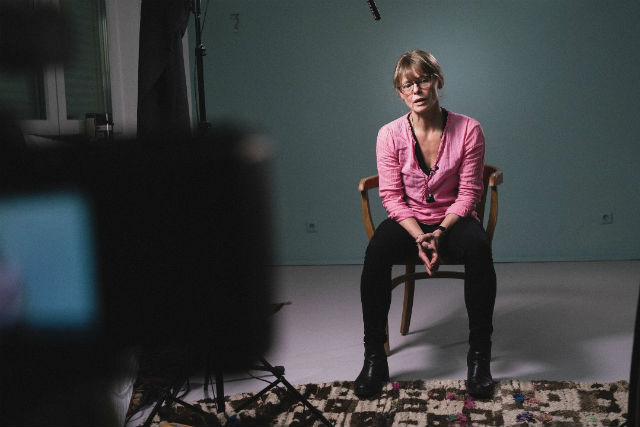Frédérique Buck, who in 2016 created “I am not a refugee” to help people connect with asylum seekers, will this time invite those who interact with displaced people to speak.
Her documentary, “Grand H”, examines the “dehumanising” asylum process through the eyes of 15 people.
Buck and a team of professionals conducted the interviews over four days on a budget that was crowdfunded through Kickstarter. “It was a bit crazy. For budget reasons, we had to do the interviews one after the other,” she explained.
The interviewees range from people working with displaced people, like teachers and NGO staff, to a man who embodies the asylum system, foreign affairs minister Jean Asselborn.

Photo: Sven Becker. Camera-man Olivier Koos with Frédérique Buck during filming of “Grand H”
“It’s a very difficult situation. If a certain percentage get refugee status, a lot of people we know don’t get it. They need to go back, and it’s a tragedy for them, but also for the people who connected with them,” Buck said, adding: “All the people, who took a refugee into their homes, live with the fear this person won’t get their status.”
Buck’s film tackles the conflict between the humane approach and the clinical world of the asylum system. While she recognises the need for objectivity and criteria for granting asylum, “we should still ask where is the humanity in this system,” she said.
The film is also a positive showcase for some of the most successful grass roots integration projects and the passion and commitment behind them, including hosting project Oppent Haus and sports integration project Sport Unity. “All these projects put next to one another make a lot of sense. They are all positive and that’s why they are in the movie, because they are telling a progressive story,” Buck said.
The communication’s expert hopes to show the final version of the film in schools and with different NGOs to reach as many people as possible. Although they achieved their goal on Kickstarter, Buck is still looking for further financial means to cover post-production costs.
“The more money we have, the better and more quickly we can finish the film”, she said. The Kickstarter campaign closes on 15 February.
